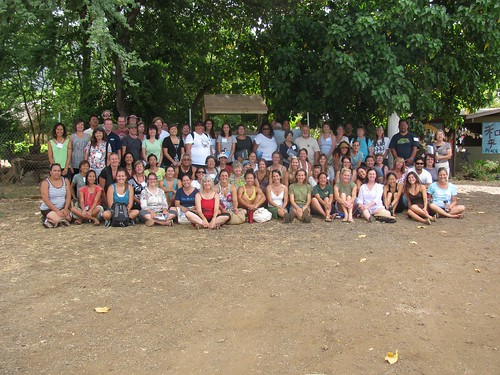
This post is part of the Science Tuesday feature series on the USDA blog. Check back each week as we showcase stories and news from the USDA's rich science and research portfolio.
Many teachers use creative methods to keep their students engaged in the curriculum they are teaching. Some methods work far better than others. For one group in Hawaii, teachers are using gardening to boost their science, technology and math classes, while placing an emphasis on Hawaii’s need for more experiential science learning related to agriculture and sustainability.
The Kohala Center is using funding from USDA’s National Institute of Food and Agriculture through the Secondary Higher Education and Ag in the Classroom Challenge grants program to organize the Hawai‘i Island School Garden Network. This network, consisting of 30 elementary, middle and high school teachers, will establish a School Learning Garden program that will integrate core curriculum and STEM education with hands-on, garden-based learning.
Over the course of one year, participating teachers will complete six learning modules that include a summer intensive, various school garden visits, a mentoring/teacher observation program and a garden-based research project. Each is designed to help them develop the skills and confidence needed to be a sustainability educator in a school garden setting.
As Hawaii is at the threshold of an agricultural renaissance, island residents understand the urgent need to return to more sustainable food and energy systems and to improve the state's environment and human health. However, for this renaissance to be successful, the education pipeline needs to motivate students to gain the education needed for change to happen. School gardens are a logical place for experiential science learning and schooling for sustainability to start. The long-term goal of the project is to create an agricultural education program at the elementary and secondary levels that motivates and qualifies greater numbers of Hawai'i students to complete college-level agricultural science degree programs.
Food, water, energy, waste and economics play into the whole system of the garden every time a gardener goes out to work. Farming and gardening today have become a science with an emphasis on technology. The Hawai’i Island School Garden Network hopes to develop a team of educators who will bring science and the art of food production together in soil/seed to table programs.
